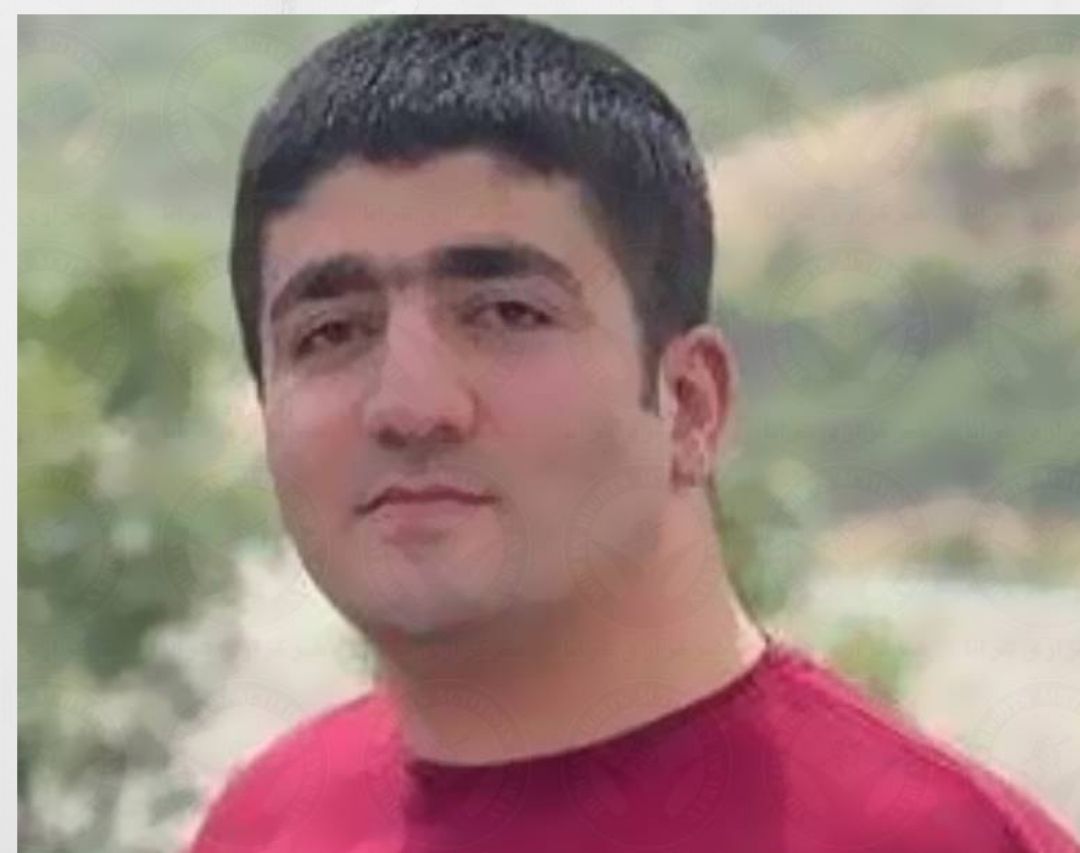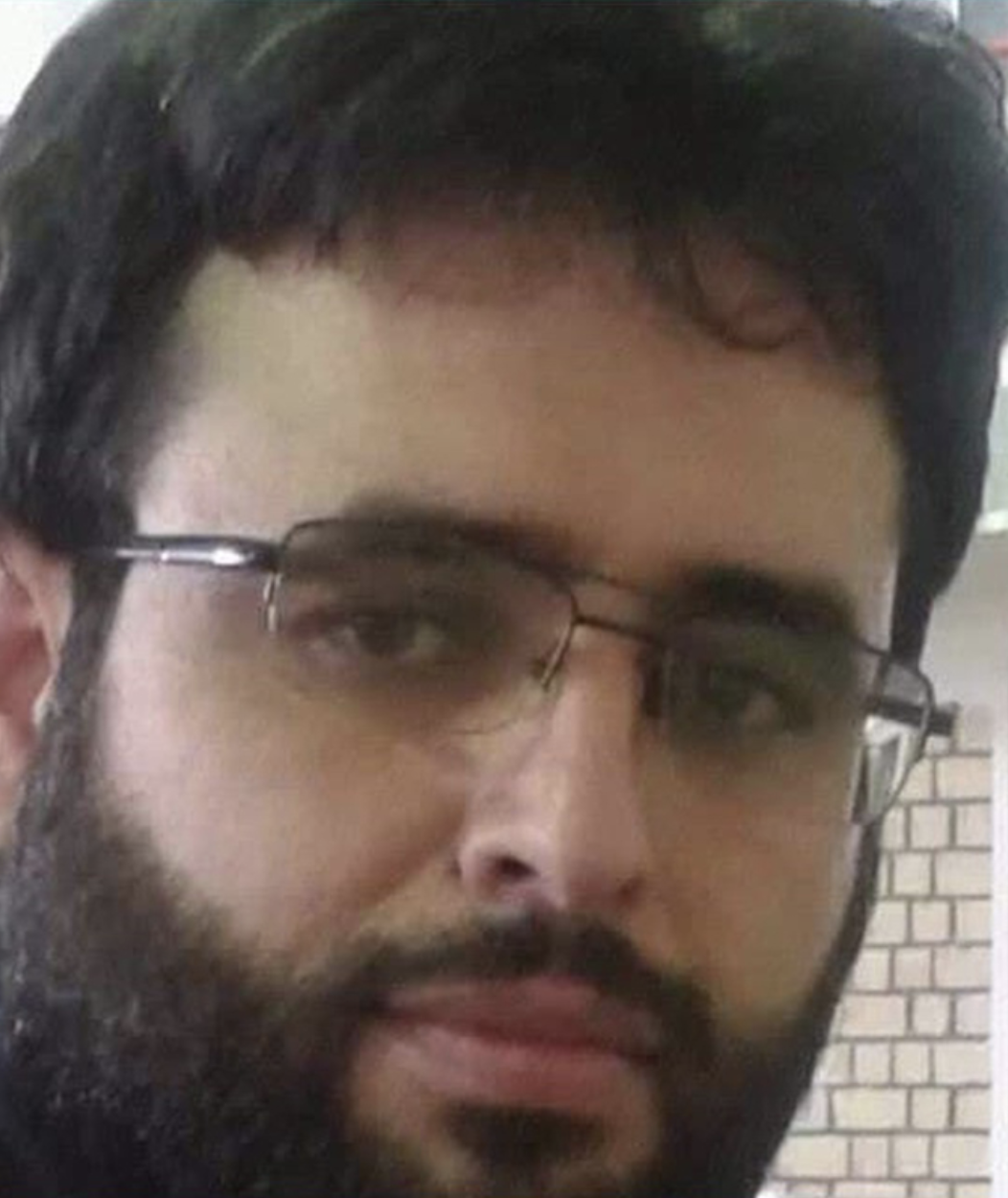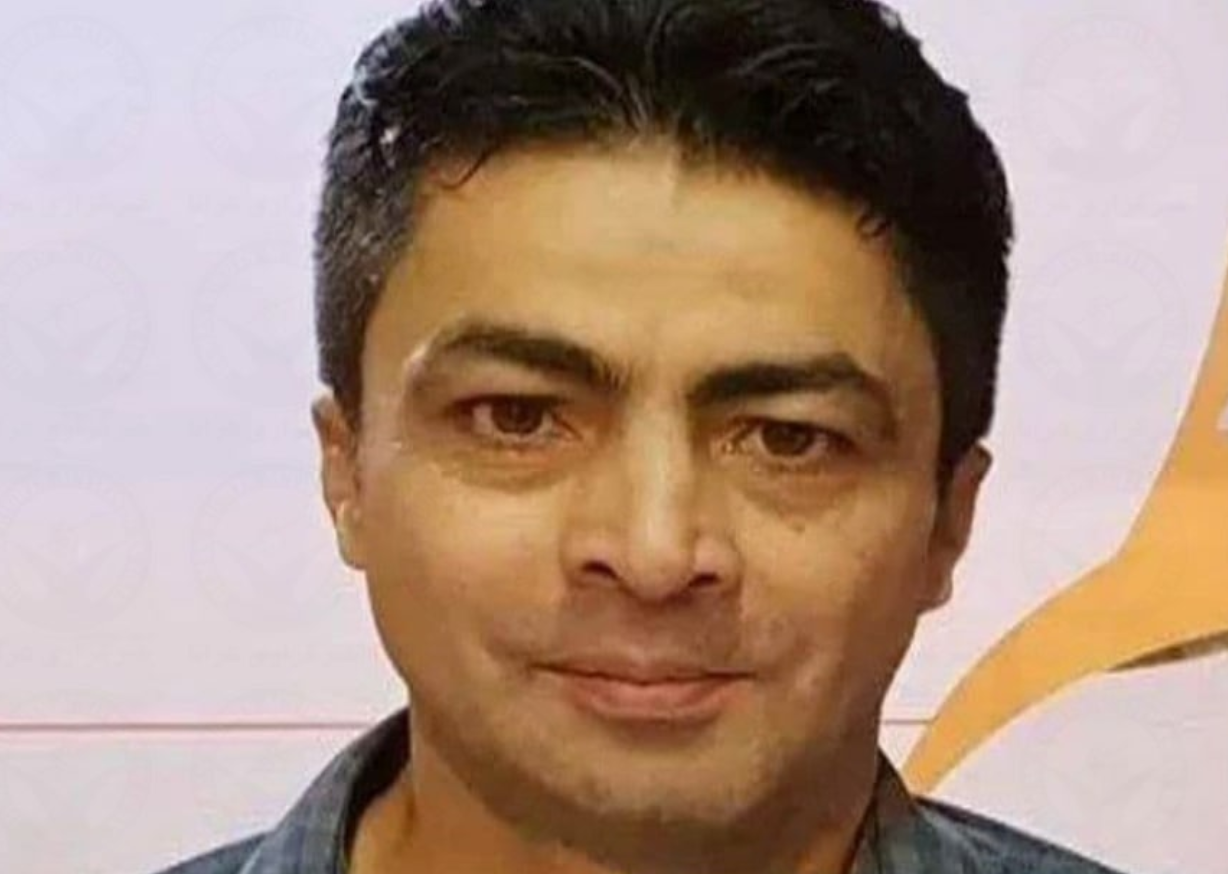Human Rights Activists News Agency (HRANA)- Dozens of civil activists issued a statement October 18th advocating for due process in the case of political prisoner Payam Shakiba.
Held in Rajai Shahr Prison of Karaj since his arrest in February 2018, Shakiba was sentenced to 11 years in prison by Judge Ahmadzadeh. The sentence was later upheld in an appeals court.
Shakiba is a former member of the University of Zanjan’s Islamic Student Association, and prior to his persecution by authorities was a graduate student of political science at Allameh Tabatabai University.
The full text of the activists’ statement, translated into English by HRANA, is below:
Payam Shakiba, a former member of the Islamic Student Association at the University of Zanjan, was first arrested in July 2008 along with several other students protesting against the [sexual] assault of a female student by a university vice-president. All of the protesters were convicted. Payam was released on bail after 40 days and sentenced one year later to a year in prison.
Upon completion of his compulsory military service, he was hired as a teacher in September 2010 at a semi-private school in Tehran. In November of that year, he went to prison to serve his sentence. After his release, the Ministry of Education halted his employment proceedings.
Mr. Shakiba passed the entrance exam for master’s programs in applied science at both a public institution and Azad University. However, the public university barred him from enrolling in the program, given his status as a “starred” student [i.e. a student whose file is marked with an asterisk to indicate previous disciplinary action for political activity]. He had no choice but to enroll in the Sciences and Research Branch at Azad University. In the final days of his first semester, however, he was expelled and banned from returning to his studies.
Payam, however, didn’t stop there: he took the entrance exam again in 2013 and was accepted to the political science program at Allameh Tabatabai University. He had spent years in the meantime earning his living in industrial workshops.
Payam Shakiba was arrested for a second time on February 19, 2017, on charges of “acting against national security by assembling and colluding against the regime.” After a search of his workplace in the industrial park of Golgoun, in Shahriar, he was transferred to solitary confinement in Ward 209 of Evin Prison, under the jurisdiction of the Ministry of Intelligence. During this time he was denied access to a lawyer or visitation from family members. When his interrogation period had finished, he was illegally exiled to Rajai Shahr prison where he spent 17 months in legal limbo. It was then that he was faced with a judicial conundrum: first the appeals court informed one of his lawyers that Shakiba’s 11-year sentence had been reduced to six; a week later, another one of his lawyers was summoned to court, where he learned that the 11-year sentence had been upheld, and that the five-year reduction was no longer valid.
A glance at the processing of Mr. Shakiba’s cases, and at his sentence as it stands, reveals a flagrant injustice and lack of due process. What kind of judicial system takes employment opportunity away from a student and future teacher because they protested a sexual assault? In what kind of fair process can an interrogator rule in lieu of a judge to reverse an already-appealed sentence? Why are the basic minimums of amenities and living space withheld from Payam Shakiba and from other political prisoners? Why don’t they have access to adequate hygiene and nutrition, or even to a cooling system in the summer?
It is common knowledge nowadays that these deprivations serve to break a prisoner’s spirit and resolve. Yet as we also know, our grand and unflappable Payam cannot be broken. Anyone close to him knows him as an altogether reasonable, kind, humble, generous person, courageous and defiant in the face of injustice.
We the undersigned protest the illegal arrest and incarceration of this student activist. We consider the trial unfair and believe that his human and civil rights have been disregarded at all stages of the legal process, through the interrogation and investigation to the preliminary and appeals court proceedings.
Blindfolding, solitary confinement, and denial of access to a lawyer are violations of a defendant’s rights. Furthermore, the objectivity of the preliminary trial was compromised by the interference of a Ministry of Intelligence representative. By a flagrant act of interference [by non-judiciary authorities], his sentence was increased on appeal.
As friends, civil activists, and fellow students of Payam Shakiba, we object to his sentence and the unfair process to which he was subjected.
We ask for the immediate, unconditional release of Payam Shakiba so that he may defend himself in a fair trial before a jury. This self-evident legal and human right cannot be denied and ignored for perpetuity.
We ask human rights organizations and activists to carry out their duty, regardless of their political allegiances. The writing off of certain political prisoners is tantamount to abetting the suppression of their voices, and those guilty of it should be held accountable before history.
Ahmad Barani, Ahmad Biglari, Ahmad Jabbari, Ahmad Zahedi Langroudi, Ahmad Mohammadi, Ahmad Madadi, Ahmad Mirzaei, Ahmad Yazdi, Arsalan Beigi, Esmaeil Sarahandi, Asghar Dehghan, Asghar, Bahram Mahmoudi, Abolfazl Samadi, Aboozar Beheshti, Ehsan Rezaei, Ahmad Ebrahimi, Ahmad Barani, Ahmad Biglari, Ahmad Jabbari, Aazam Yari, Afshin Pourjam, Afshin Hyrtyan, Akbar Amini Armaki, Akbar Naseri, Akbar Hashemi, Mohammad Ebrahimi, A. Nasirian, Elham Motalebi, Omid Madani, Amir Bagheri, Anwar Farajzadeh, Ulduz Hashemi, Ivaz Hashemi, Adindeh Beigi, Azar Gilani , Amanj Amini, Avat Razavi, Bahera Alamdari, Bahram Aghdasi, Behzad Delshad, Feshdeh Fereydouni, Bahman Golali, Bahman Nouri, Behnam Farzaneh, Bijan Najafi, Parsa Krmanjyan, Parvaneh Ghasemian, Parvun Tavakoli, Parvin Mohammadi, Parvin Nokhostin, Parisa Sarai, Soraya Ghobadi, Jafar Ebrahimi, Jafar Hosseinzadeh, Javad Lal Mohammad, Jahangir Kas Nzany, Habib Beigi, Hassan Elmi, Hassan Noorzad, Hossein Ramezani Sarajari, Hossein Shah Pari, Hossein Sadeghi, Hossein Mousavi, Hamid Reza Kamayebarf, Hamid Zanganeh, Hamid Shabani, Hamid Shabani, Hamid Azimi, Hamid Noori, Hooria Farajzadeh, Dariush Rezaei, Dariush Faraji, Rahele Farajzadeh Tarani , Raheleh Ghodsi, Rahman Beigi, Rahim Hosniyatabar, Rahim Zakeri, Rahim Shams, Rasoul Heshmati, Reza Ahmadi, Reza Hosseini, Reza Abbasi, Rouhollah Hedayati, Ruzbeh Ekradi, Roshan Hashemi, Romina Mohseni Rajai, Zahra Rahimi, Ziba Omidi, Zainab Sepehri, Zhaleh Rouhzad, Sarah Beheshti, Sarah Siahpour, Sarah Barakat, Saeed Rezaei, Saeed Naimi, Saeedeh Maasoumi, Samaneh Abedini, Sorna Hashemi, Soheil Siri, Soheila Dalwand, Siamak Farid, Siavash Montazeri, Sima Salmani, Simin Javandideh, Sharareh Aram, Shahrzad Ghadiri, Shahnaz Akmali, Shadi Mohammadi Shiva, Ameli Rad, Saber Molaei, Sadegh Rezaie, Sedighe Zeitouni, Soghari Noor, Salah Sorkhi, Taher Hamedi, Tahere Ghobadi, Abed Tavancheh, Aliyeh Aghdoost, Abbas Shahbazi, Abbas Safari, Abdul Rahman Azim, Aziz Qasemzadeh, Esmat Taa Ali Ebrahimi, Ali Ahmadi, Ali Asghar Zolghodar, Ali Bagheri, Ali Rangipour, Ali Zarei, Ali Samad, Ali Azimi, Ali Masoumi, Ali Mirfatah, Alireza Behdarvand, Alireza Firoozi, Alireza Ghadiri, Enayat Vosoughi, Gholamreza Maleki, Gholamreza Hezaveh, Fatehmeh Ahmadi, Faezeh Almasi, Farzin Rezaei Roshan, Forough Sami Nia, Forough Fereydouni, Farhad Salamatkhah, Farideh Moradkhani, Fahimeh Badkoobehi, Kaveh Mozaffari, Kiandokht Nikbakht, Keyvan Rezaei, Laleh Abbasi, Madeh Alavi, Mojtaba Asadi, Majid Hassani, Majid Rahmati, Majid Masoumi, Mahboobeh Farahzadi, Mohsen Omrani, Mohammad Azami, Mohammad Hossein Rafiei, Mohammad Saeed Ahmadi, Mohammad Karim Beigi, M Hamad Karimi, Mohammad Ali Rostami, Mahmoud Didani, Mahmoud Mojdehi, Morteza Asadi, Morteza Nazari, Marzieh Dorood, Marzieh Mahmoudi, Maryam Haghighi, Maryam Mohammadi, Masoud Hosseini, Masoud Heydariyan, Masoud Saki, Masoud Kouhi, Masoud Hashemi, Masoumeh Dehghan, Mansour Soleimani , Mansoureh Farahzadi, Manijeh Foruzandeh, Mehdi Rahmati, Mehdi Arabshahi, Mehrnoush Heidarzadeh, Mahshid Rouhani, Milad Janat, Minoo Keykhosrowi, Naser Rashidi, Nahid Ebrahimi, Narges Ahmadi, Narges Zafari, Nasrin Ahmadi, Nasrin Amiri, Nasrin Saifodini, Niloofar Kadokhodayi, Vahid Zandi, Vahsa Safi, Hagar Karami, Homayoun Panahi, Salah Azadi, Ali Jafari, Roozbeh Rezaei, Amir Hossein Sa’ad , Ali Abu Torabi, Maryam Qalychyha, Humayun Madani, Mir Hamid Salek, Azita Rezvan, Amir Hossein Saadat, Naveed Kamran, Jelveh Javaheri, Sepideh Saghafian, Forough Azizi, Sarah Hemmati, Laleh Mohammadi, Fatemeh Mohammadi, Nastaran Eshghi, Ali Reza Tarkashvand, Zohreh Asadpour, Abbas Shahbazi, Reza Ansari, Masoumeh Abbasian, Abbas Shahrabi, Alireza Kaviani, Morteza Zarrin, Mahsa Yazdani, Zahra Ghaeninejad, Ahmad Rezaei, Afshan Davari.
****
Rajai Shahr Prison is located in Karaj, approximately 30 miles west of Tehran.
The University of Zanjan is located in Zanjan, approximately 180 miles northwest of Tehran.













